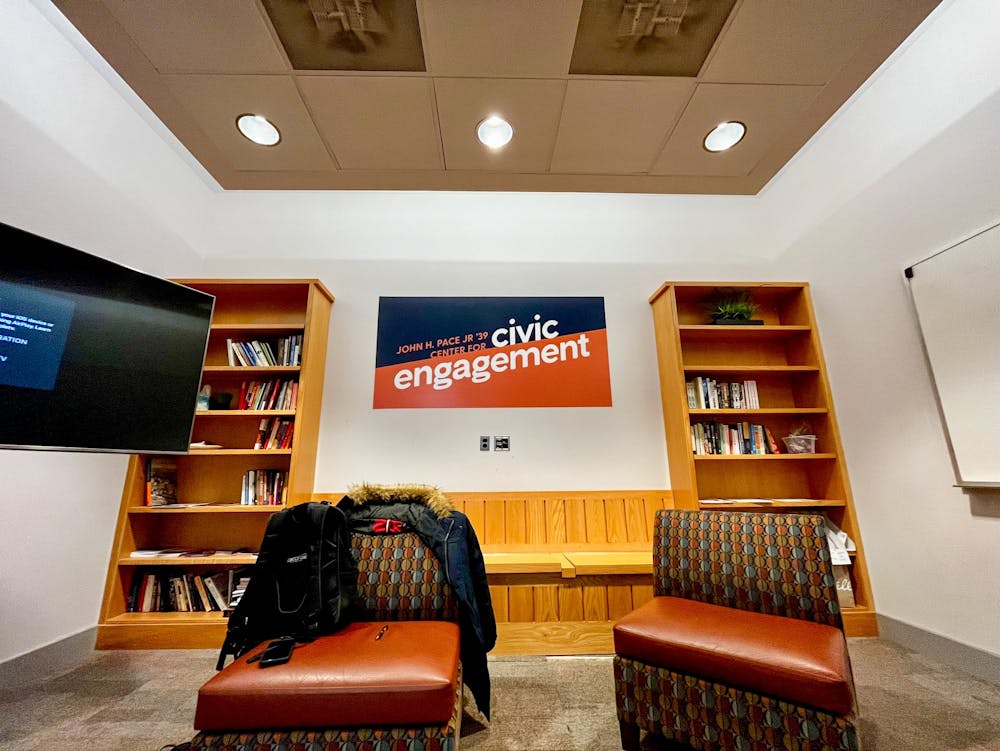In three years, Princeton’s Class of 2029 will be facing the reality of postgrad, weighing future salaries against the value they’re going to contribute to the world. As first-years, 71.9 percent of respondents to the 2029 Frosh Survey described their career ambitions as being in the nation’s service or the service of humanity, in line with Princeton’s informal motto. But a nearly identical proportion — 70.1 percent — also said they aspired to make money in their careers.
The proportion of first-years aspiring to do public service is a slight decrease compared to the previous first-year classes; the Class of 2028 reported 74.9 percent and the Class of 2027 reported 73.1 percent.
Many first-years took part in service-adjacent activities in high school. The most popular high school extracurricular was community service, of which 74 percent of freshmen participated in. This parallels last year’s Frosh Survey, in which the Class of 2028 reported that 76 percent were involved in community service. Among the Class of 2029, honor societies were the next most popular extracurricular, trailing almost 20 percentage points behind community service.
Senior Surveys, also conducted annually by the ‘Prince,’ showed similar popularity in service on campus. While affinity groups were the most popular extracurricular for the senior Class of 2025, with 32.5 percent participating over the course of their time at Princeton, community service ranked second place at 29.2 percent, and activism placed fourth at 21.3 percent. For the Classes of 2023 and 2024, community service was the most frequently reported collegiate extracurricular, with around 34 percent of respondents.
The Class of 2029 also aspires to make money after graduating from Princeton, with 70.1 percent noting this as one of their career aspirations. Moreover, nine percent report exclusively being interested in making money after graduating.
In the Class of 2025 Senior Survey, however, service-oriented careers correlated with lower incomes. Out of the 65.1 percent who characterized their postgrad plans as being in the nation’s service, the majority of seniors expected to make $90k or less per year. Furthermore, out of the seniors that reported an expected income greater than 120k, around 69 percent did not think that their postgraduate plans were in the nation’s service.

In the Class of 2025, over 90 percent of respondents going into careers in medicine and education characterized their future work to be in national service. Conversely, around 24 percent of seniors from the Class of 2025 report going into software engineering (4.9 percent), finance (11.1 percent), consulting (6.1 percent), and business (2.0 percent) immediately after graduation — fields not commonly associated with public service. In the Class of 2029, the most popular career fields for students aspiring to service were academia and engineering, while the least popular were sports, media/publishing, entertainment, or not intending to work at all.
With programs like the Pace Center for Civic Engagement and the Novogratz Bridge Year program, Princeton students are encouraged early in their Princeton careers to engage in public service at a local and international level. Looking at Frosh Survey data, most first-years come to Princeton with at least the goal to be in service to humanity when they exit the ‘Orange Bubble,’ but it remains to be seen if they’ll fulfill Princeton’s informal mission.
Summer Bosch is a Data contributor for the ‘Prince.’
Please send any corrections to corrections[at]dailyprincetonian.com.









